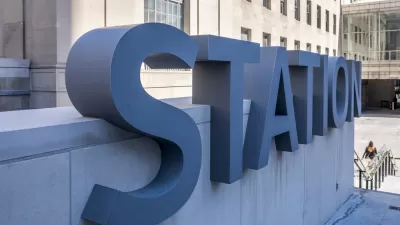Age-old transit planning questions will be raised over the next year in Toronto.
Oliver Moore writes a response to the news out of Toronto about an audacious transit plan put forward by the city's planning department in February. According to Moore, "residents could be forgiven if they tempered their optimism at the latest offering…with a dash of weariness," given the city's propensity for planning, but not delivering on big transit plans.
Moore intends to discover, an answer to the question of how likely the proposal is to be delivered. "The short answer is," explains Moore, "depends on which line. The next year will be crucial, as staff go through the messy and politically fraught business of figuring out and prioritizing the projects. City politicians have to decide how to pay for them."
Then Moore gets at the heart of an infinite amount of frustration and disappointment with transit planning the world over:
Handing decisions to unelected officials robs the process of democratic legitimacy. But leaving it in the hands of politicians, who may care more about the next vote than the next generation, carries the risk of constant detours, U-turns and cynical decisions.
This isn't the first time in recent weeks this question has come up. Taken together with an editorial by Ethan Elkind about the political process that created the new Gold Line extension in Los Angeles, we might say we have a trend in media commentary on transit planning.
Moore's article includes more detail about the political and bureaucratic process necessary to see the project's many components through. Also included is a list of all the projects included in the new plan, with descriptions of each proposed line.
FULL STORY: Toronto’s grand transit plan (maybe, hopefully)

Alabama: Trump Terminates Settlements for Black Communities Harmed By Raw Sewage
Trump deemed the landmark civil rights agreement “illegal DEI and environmental justice policy.”

Study: Maui’s Plan to Convert Vacation Rentals to Long-Term Housing Could Cause Nearly $1 Billion Economic Loss
The plan would reduce visitor accommodation by 25% resulting in 1,900 jobs lost.

Why Should We Subsidize Public Transportation?
Many public transit agencies face financial stress due to rising costs, declining fare revenue, and declining subsidies. Transit advocates must provide a strong business case for increasing public transit funding.

Wind Energy on the Rise Despite Federal Policy Reversal
The Trump administration is revoking federal support for renewable energy, but demand for new projects continues unabated.

Passengers Flock to Caltrain After Electrification
The new electric trains are running faster and more reliably, leading to strong ridership growth on the Bay Area rail system.

Texas Churches Rally Behind ‘Yes in God’s Back Yard’ Legislation
Religious leaders want the state to reduce zoning regulations to streamline leasing church-owned land to housing developers.
Urban Design for Planners 1: Software Tools
This six-course series explores essential urban design concepts using open source software and equips planners with the tools they need to participate fully in the urban design process.
Planning for Universal Design
Learn the tools for implementing Universal Design in planning regulations.
Caltrans
Smith Gee Studio
Institute for Housing and Urban Development Studies (IHS)
City of Grandview
Harvard GSD Executive Education
Toledo-Lucas County Plan Commissions
Salt Lake City
NYU Wagner Graduate School of Public Service




























